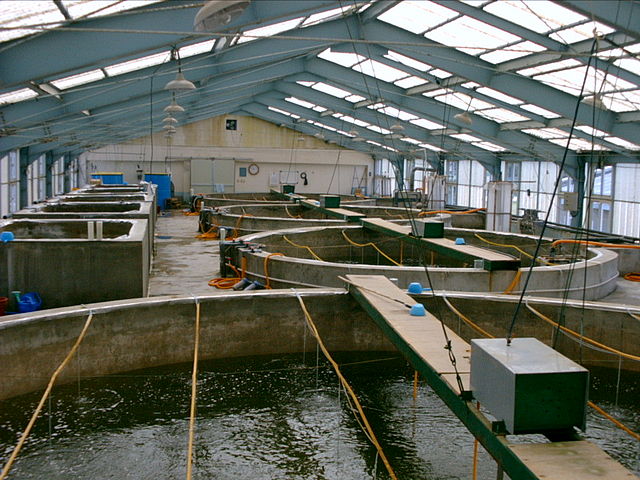Shrimps and Bitcoin mining - using waste heat for shrimp farming
The benefits of Bitcoin mining are no longer limited to confirming Bitcoin transactions and securing the Bitcoin network. For many people who have little access to electricity, Bitcoin mining creates new economic opportunities and improved life prospects - Blocktrainer.de reported. However, numerous industrial sectors have also recognized the advantages of the mining process for their projects and have integrated it into their concepts. In particular, the ability of mobile and modular Bitcoin mining systems, which can be set up and operated almost anywhere, to act as a flexible consumer of otherwise wasted surplus energy has formed the basis for a wide variety of concepts.
Many energy companies, such as Volcano Energy in El Salvador, monetize renewable surplus energy through Bitcoin mining, thereby promoting the economy and the expansion of the corresponding infrastructure. The electricity grid operator ERCOT in the US state of Texas also uses the mining facilities as a tool to stabilize electricity grids and prices at times of increased demand, i.e. during power shortages during heat waves or extreme cold. Landfill operators can convert the methane gas produced by the plants directly into electricity on site and monetize it using Bitcoin mining, which significantly reduces emissions and increases profitability.
The ecological and economic benefits of many concepts are therefore based on the monetization of otherwise wasted surplus energy. However, some industries also focus additionally or primarily on the use of waste heat.
Utilization of waste heat
Heat generation accounts for the largest share of global energy consumption. The use of waste heat, which is generated in large quantities during the mining process through the conversion of electricity, represents an innovative and sustainable variant of heat utilization or heat recovery that is already being used in some concepts.
Ultimately, all processes that require heat or are based on the conversion of electricity into heat are potential projects for the integration of air-, water- or immersion-cooled Bitcoin mining devices, the so-called ASICs (Application Specific Integrated Circuits).
There are already various projects in which the waste heat from ASICs is used to heat homes or business premises. Using heat exchangers or immersion cooling technology, the mining devices can also be used to heat water for swimming pools, pools or underfloor heating systems. As reported by Blocktrainer.de, the waste heat from Bitcoin mining is also used in the production of drinking water (desalination of water).
ASIC miners can also already be found in other areas of the agricultural, food and beverage industries, supporting growth, maturing and drying processes. Examples of practical applications include the dried mangoes from Bitcoin Mango and Green Mining DAO, the air conditioning of greenhouses for growing food by Bitcoin Brabant or the Czech entrepreneur Kamil Brejcha, and the whiskey production of the company Shelter Point.
Waste heat is also suitable for the controlled environmental conditions of aquaculture operations, such as fish and algae farming. In this context, the news platform PC Tablet has also suggested the shrimp farming sector as a potential user of the properties of Bitcoin mining.
Shrimp farming with Bitcoin mining
Heat plays an important role in shrimp farming. A constant and appropriate water temperature promotes the growth and development of shrimp. Both the food intake and utilization as well as the reproduction and health of the shrimp are temperature-dependent. Fluctuations or temperatures that are too low have a negative effect on feeding behavior, the development of sexual organs, egg production and the shrimp's immune system. The right temperature therefore also leads to a more efficient use of resources, reducing the need for additional feeding and minimizing losses due to disease and slow growth.
In practice, this means that heated ponds or tanks are often used in shrimp farming, especially in cooler climates or during the winter months. Temperature control can be achieved by various methods, such as the use of heat exchangers, heating systems or greenhouses to utilize ambient heat. A well-regulated temperature system is therefore essential for successful and productive shrimp farming.

Regulating the water temperature and quality can be very energy-intensive. Conventional heating methods are also often dependent on fossil fuels. Combining shrimp farms with Bitcoin mining facilities powered by renewable energy (e.g. wind, water, solar) can greatly reduce the energy required for heating and the need for fossil fuels, thus not only optimizing the use of resources but also improving the sustainability of both industries.
The additional financial income from Bitcoin mining can also cover the costs of the infrastructure and operation of the shrimp farm. In addition, aquaculture businesses could receive carbon credits, tax breaks or other government subsidies if they adopt the model of bitcoin mining with renewable energy and heat recovery. These economic incentives not only promote sustainable and environmentally friendly cultivation and farming methods, but also diversify the sources of income for the regional population.
However, it should not go unmentioned that this concept also brings with it a number of challenges. "These include the initial set-up costs, the complexity of managing two different farms, potential regulatory hurdles and the need for constant technological advancements to maintain efficiency and profitability." For these reasons, further research and pilot projects are important to determine the long-term benefits.
Conclusion
The integration of Bitcoin mining into different sectors of the economy opens up new avenues for sustainable practices - especially for companies that rely on heating processes. The waste heat from mining hardware can be harnessed for various applications to improve profitability, energy efficiency, resource utilization and environmental sustainability. These hybrid approaches can create a self-sustaining model that can promote both sustainability and the local economy and ultimately reduce dependence on food imports and the associated CO₂ emissions. The sustainable use of waste heat represents a cost-effective heating solution, especially for aquaculture operations, in order to control the environmental conditions in the facilities and operate more efficiently.






